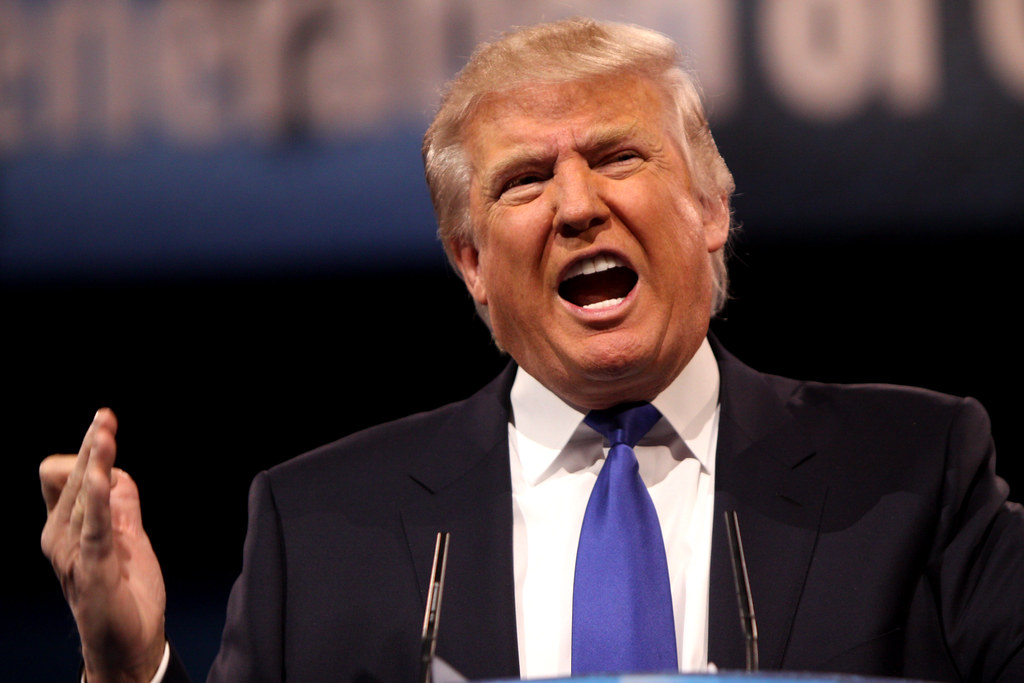Key Takeaways
• President Trump claimed his new deal would cut drug prices by up to 1,000%.
• Experts say cuts over 100% break basic math rules.
• Journalist Jason Easley called the claim incoherent and flawed.
• Some critics even question the president’s mental sharpness.
President Donald Trump announced a deal with a British drugmaker to cut drug prices by 100%, 400%, 600%, even 1,000% in some cases. He said people might pay “one eighth of a cent” per dose. He added that no one had managed this for 28 years. Yet many scratch their heads at how you can lower drug prices beyond free.
Why Trump’s 1,000% Drug Prices Drop Is Impossible
First, it is basic math that you cannot cut any price by more than 100%. If a pill costs ten dollars, zero dollars is the lowest you can go. A 1,000% cut would mean the company pays you nine times that ten dollars. That makes no sense in any market.
Journalist Jason Easley wrote on PoliticusUSA that the president’s words clash with reality. He pointed out that lowering drug prices by 1,000% would mean drug firms owe patients money to take pills. He called the idea “lunacy.” Indeed, when you place the figures side by side, the math simply fails.
Moreover, this is not the first time Trump made such claims. Last month, he said drug prices would drop by 1,000% within a year. A White House spokesperson even backed up those numbers. Yet economists quickly labeled the promises “fuzzy math.” They warned that grand statements mean little without real policy substance.
Critics Point to Signs of Mental Decline
Beyond the math, some see Trump’s repeated 1,000% claims as a sign of growing incoherence. Easley argued that watching the president’s rambling speeches is not enough. Instead, reading his exact words reveals more about his thought process. He described Trump’s speech as “babbling” and “incoherent.”
Even political allies voiced concern. Illinois Governor JB Pritzker suggested the president might have dementia. He urged Trump’s family to step in and seek mental health support for him. Pritzker said he feared no one around Trump would act, because they benefit from the president’s weakened state. Such public doubts about a sitting president’s mental health are rare and quite serious.
What This Means for Americans and Drug Costs
For now, Americans must wait to see if the deal will actually lower drug prices. While Trump celebrates, experts wonder how future contracts will work. Will companies truly sell lifesaving medicines for free? Or will they find ways to raise prices elsewhere?
Already, critics warn that companies might add hidden fees or limit drug supplies. In short, they may shift costs in other ways. Consequently, the promise of huge cuts could end up offering little real relief to patients.
On the other hand, if some prices do fall, that would benefit seniors and families on tight budgets. Still, a 1,000% cut remains impossible. At best, we might see reductions in the low double digits. That would still help, but it won’t defy basic math.
Looking Ahead: Keeping an Eye on Real Results
As the policy unfolds, watchdogs will check if drugmakers comply with the new deal. Congress might hold hearings to demand proof of savings. Journalists will likely track actual price changes at pharmacies. Above all, patients deserve clear facts on what they will pay.
Until then, talk of slashing drug prices by 1,000% remains more political theater than viable policy. If real cuts happen, they will be notable but limited. Meanwhile, debates over Trump’s claims and mental fitness will continue.
FAQs
What exactly did President Trump say about drug prices?
He claimed the new deal would lower drug prices by 100%, 400%, 600%, and even 1,000%, sometimes costing “one eighth of a cent.”
Why do critics say a 1,000% drop in drug prices is impossible?
Basic math shows you cannot reduce any cost by more than 100% without the seller paying you to buy the product.
Who is Jason Easley and what did he write?
Jason Easley is a journalist at PoliticusUSA. He wrote that Trump’s 1,000% claim defeats common sense and reveals incoherent speech.
Could this deal still lower drug prices for patients?
Yes. Even modest cuts would help people on fixed incomes. However, experts doubt any real decrease will exceed standard percentage cuts.
